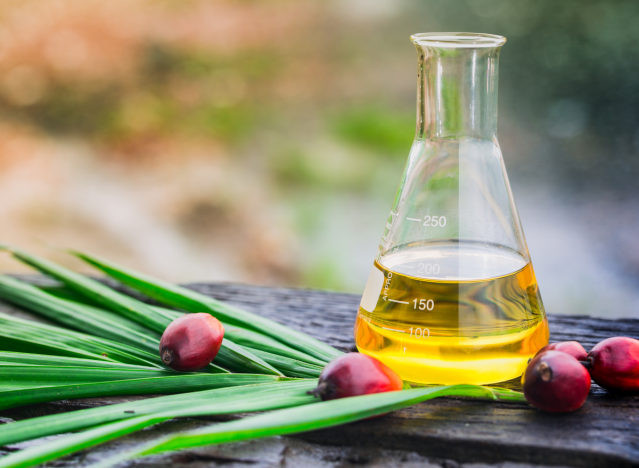When it comes to matters of the heart, high cholesterol may be one of your biggest threats. This is because when your cholesterol levels get too high, your body develops fatty deposits that can block the flow of blood in your blood vessels. The CDC says clogged arteries can significantly raise your risk for heart disease and stroke, two of the leading causes of death in the United States.
This serious issue isn't an uncommon one, either. Between 2015 and 2018, about 12% of Americans above the age of 20 had high "bad" cholesterol (LDL) levels and low "good" cholesterol (HDL) levels. This may be due to a number of factors like poor diet, a lack of exercise, or excessive alcohol consumption and smoking.
While all of these factors can contribute to high cholesterol, we are going to focus on one that you can make small changes toward in this very moment: your diet. For example, even changing the type of oil you cook with has been found to help manage your cholesterol levels.
According to a study from The Journal of Nutrition, palm oil is one of the worst oils for your cholesterol levels because it is so high in saturated fat.
Why palm oil is bad for your cholesterol levels.

The Journal of Nutrition study found that compared to vegetable oils lower in saturated fat, consuming palm oil significantly increased LDL cholesterol levels.
According to Harvard Health, saturated fats found in palm oil, coconut oil, red meat, butter, and most ice creams, are harmful to your overall health and should always be consumed in moderation. And while they're technically not as "bad" as something like trans fat, they've still been proven to raise your cholesterol levels.
Oils to use instead
Replacing palm oil with unsaturated fat can help you reduce your risk of high cholesterol. In a 2018 analysis published in the Journal of Lipid Research, researchers found that seed oils such as sunflower, rapeseed, and flaxseed oil were best for lowering cholesterol levels.
Other unsaturated fats like olive oil were still successful, but the seed oils performed better overall. This analysis also confirmed that saturated fats such as butter were the worst for lowering cholesterol.
The takeaway
Whether you struggle with high cholesterol currently or have found out that you're at high risk, choosing which oil you cook with or consume on a regular basis can make a significant difference in your heart health.
If you can, try replacing palm oil or butter with something like rapeseed, sunflower, or olive oil when you cook your next meal at home.
No comments:
Post a Comment